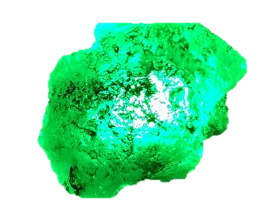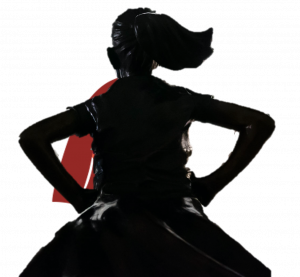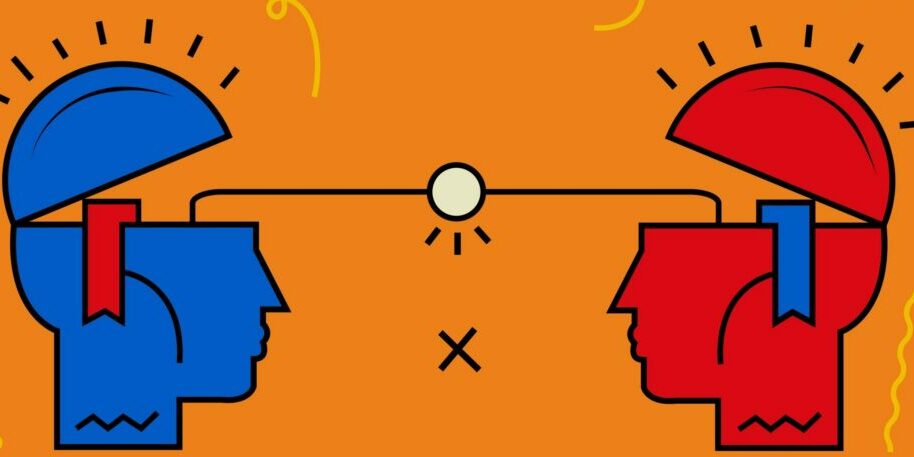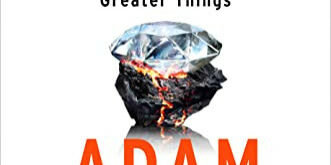As far as I can tell by my extensive deep dive into the world of superheroes this past weekend, in order to be a bonafide superhero you need to be in possession of three basic things:
1) A superpower– something you have that is extraordinary and beyond the reach of most other humans
Now most of you will stop right there and say, “Welp, that does it. No superhero tights for me! I certainly don’t have any kind of power that others don’t.”
And that my friend, is your first mistake. Turns out that any and all of us have the ability to be superheroes but only a meager 5% of humans engage their abilities (hence making this a superhuman power)! But fear not, I can help with this. Keep reading…
2) Positive intent – you must use your superpowers for good (as opposed to evil – unless you want to be a supervillain).
3) You have to have, (and know), a weakness. An Achille’s heel. Kryptonite. No superhero is infallible or there is simply no storyline.
There’s a fourth secret I seemed to have uncovered as well. A secret I’ll share with you today that I think even the superheroes of the world could benefit from…but that will come later.
Let’s get right to it. The biggest hurdle that prevents most of us from being superheroes is that we don’t believe we have the ability to leap buildings in a single bound. While that may be true (and I am sincerely sorry I can’t help with physical superhuman feats), I can empower you with a mental one.
The superhuman ability of self-awareness.
Bear with me. We all think we are already self-aware. At least the data suggest that 95% of us believe we already possess this power, but in reality, only about 12% of us have actually tapped into this superpower. That leaves the majority of us mere mortals, wandering around in ignorance or denial.
And before you roll your eyes and say, that self-awareness is not a superpower, let’s just take a closer look at what self-awareness requires:
An accurate internal knowledge of your own character, feeling, skills, and abilities.
That means you have to understand who you are not only as YOU see yourself, but also as OTHERs see you. Which means either you’re tapping into a second superpower of telepathy and literally reading other people’s minds, or you have an incredibly adept technique to get a clear understanding of how other people see you, without them just telling you what you want to hear.
Getting an accurate sense of self is harder than it might first seem. If it were as simple as walking up to your best friend or your colleague and asking “Hey Joe, am I empathetic?” and getting an accurate response, I don’t think self-awareness would be a superpower. I’d argue that most people are capable of asking a question (whether or not they know which question to ask is another issue, but for argument’s sake, let’s give everyone the benefit of the doubt).
The tricky bit is getting an accurate response. And, not only from Joe. But from your sister, your colleague, your partner all the people you might interact with on a given day. And of course, it’s not just that one day when you’re in a particularly chipper mood that you need to be asking. Our brains are live-wired, meaning they are constantly changing. Your brain is different than it was a second ago before you read that last sentence. And now again, it’s different. So just because Joe (who we are assuming is telling the truth and not otherwise motivated or scared to tell you honestly how he really feels) said you were empathetic last week, doesn’t mean you are still empathic now, in a different context, with a different person and with a newly wired brain. Yikes! Now you can see how this begins to get tricky.
But have no fear, icueity is here. Here’s an assessment tool that allows you get ongoing, anonymous feedback from others to ensure that your internal awareness aligns with the way others see you. Ta-dah! You’re one step closer to superhero status just by using a simple mobile app.
Now, to use these new found powers for good. The second step of being a superhero requires that you have positive intent. Using the icueity assessment, you’ll find out you have some gaps in areas that you might not have anticipated. Perhaps you thought you were hilarious but according to your feedback you discover, humor isn’t actually a strength.
This is where heroes and humans (and villains!) diverge. It is a lot easier to reject feedback that doesn’t align with your own, turn a blind eye and continue behaving in ways that you now KNOW aren’t serving others the way you originally thought. This reaction is completely normal HUMAN behavior– but not a superhero reaction. Superheroes are able to override this response and use their newly discovered self-awareness for good…even if the feedback wasn’t all positive.
As humans, it’s natural to focus on the negative. In fact, our brains are specifically designed to do exactly that. A focus on negative things was an important shortcut that at one time in our history helped keep our ancestors alive. Think about living in caveperson times. While it might be nice to stay focused on those big juicy berries in front of you, if you ignore the rustling of the tiger behind you, well, you don’t survive long enough to appreciate the tasty berry goodness.
A focus on the negative (or potential negative outcomes) helped keep us alive. Hence today, when we receive feedback that is less than flattering it’s only human to get stuck in cycles of negativity, guilt, anger, bitterness and frustration. Stay here, and a villain is bound to emerge.
But to be a superhero means acknowledging the negative. I call this, biting the lemon. You’ve probably heard people say something about how you’re supposed to make lemonade when life throws you lemons.
I hate this saying.
When life throws you lemons, sour truths that you’d rather sugar coat, you need to just bite the lemon.
Sour. Raw. Bitter. Truths.
They may taste awful but remember that these lemons aren’t meant to be permeant (you can grow now that you know your baseline), or pervasive (you aren’t getting negative feedback on every trait from every person), or personal (people aren’t giving you bad scores because they don’t like you. Feedback is a gift that is given to help you and everyone else, grow). Bite the lemons, then every other piece of feedback will taste that much sweeter after. Rather than stay sour, *turn your focus back to your strengths.
*Note, that does not mean ignoring or dismissing weaknesses.
This is point number three of being a superhero. Superman doesn’t work at a kryptonite factory for good reason! In fact, one could argue it’s the acknowledgment of their weaknesses that makes superheroes as powerful as they are. By focusing on their strengths, they can accomplish major feats, but none is so foolish to believe they can just power their way through their weaknesses. Each knows when they need to call in backup – and the really smart ones have already told their sidekicks what to be on the lookout for! That’s the fourth secret that I think even most superheroes overlook.
Superman works hard to conceal his weaknesses. But imagine if he was not only aware of his weaknesses, but he broadcast them as well.
“Faster than a speeding bullet! More powerful than a locomotive! Able to leap tall buildings at a single bound! Crippled by kryoptonite!”
 A much stronger character would make clear to those close to him that kryptonite is an area in which he should never be placed. He won’t perform optimally in these situations.
A much stronger character would make clear to those close to him that kryptonite is an area in which he should never be placed. He won’t perform optimally in these situations.
The result?
Superman’s team could step in and cover for him preemptively.
Being vulnerable with our weaknesses and sharing them with our teams, our families, and our communities, reduces the chance of failure for everyone. It might be, that one of Superman’s teammates actually works most optimally under conditions where kryptonite is present. Now, rather than trying to power through a known weakness, Superman can step aside and empower his teammate to use her strengths in wielding kryptonite to the advantage of everyone.
Allow me give you a sports example.
I happen to be a terrible golfer. No one expects me to carry the team because I am open about my sincere lack of ability in the sport. But let’s say for some reason I was too proud to admit my need for growth in this sport (or my absolute need to NOT be put in a position where I have to execute drives or putts). If I convince myself I can handle it or allow my teammates to believe I’m better than I am, that sets us all up for failure (and unnecessarily increases my fear, pressure, and stress). This is a superhero move to be avoided.
Be better than a superhero.
Be a super, self-aware-and-share human.
Being a bad golfer doesn’t make me a bad athlete any more than being un-empathetic or a bad listener makes any one of us a bad leader. The difference between my team winning a golf tournament and me making a complete fool of us is three-fold.
- I have to be self-aware (I’m a great caddy).
- I have to be willing to operate from my actual strengths, not what others expect of me or what I’ve convinced myself others expect from me (Be the caddy!)
- I have to know my weakness and bite that lemon (I’m a terrible golfer). *Bonus* if I share that weakness with my team so they aren’t all chanting my name saying “C’mon Rebecca, drive the ball! Finish the putt!” and tempting me to act outside of my strengths. Instead, they will cheer “C’mon Rebecca, put that driver in the hands of Tiger!”
The result?
I feel good, my team feels confident, we all have a higher probability of success.
The more we can engage with tools like icueity to expose our own superpowers and kryptonites, (and the more willing we are to share them with others), the stronger our relationships, the better our communication, and the more confident and competent we become.
What stops you from getting icueity and starting on your superhero journey?
Tights optional.
[/fusion_text][/fusion_builder_column][/fusion_builder_row][/fusion_builder_container]

![Fearless blog FEAR[less] blog](https://rebeccaheiss.com/wp-content/uploads/2024/05/Fearless-blog.png)


